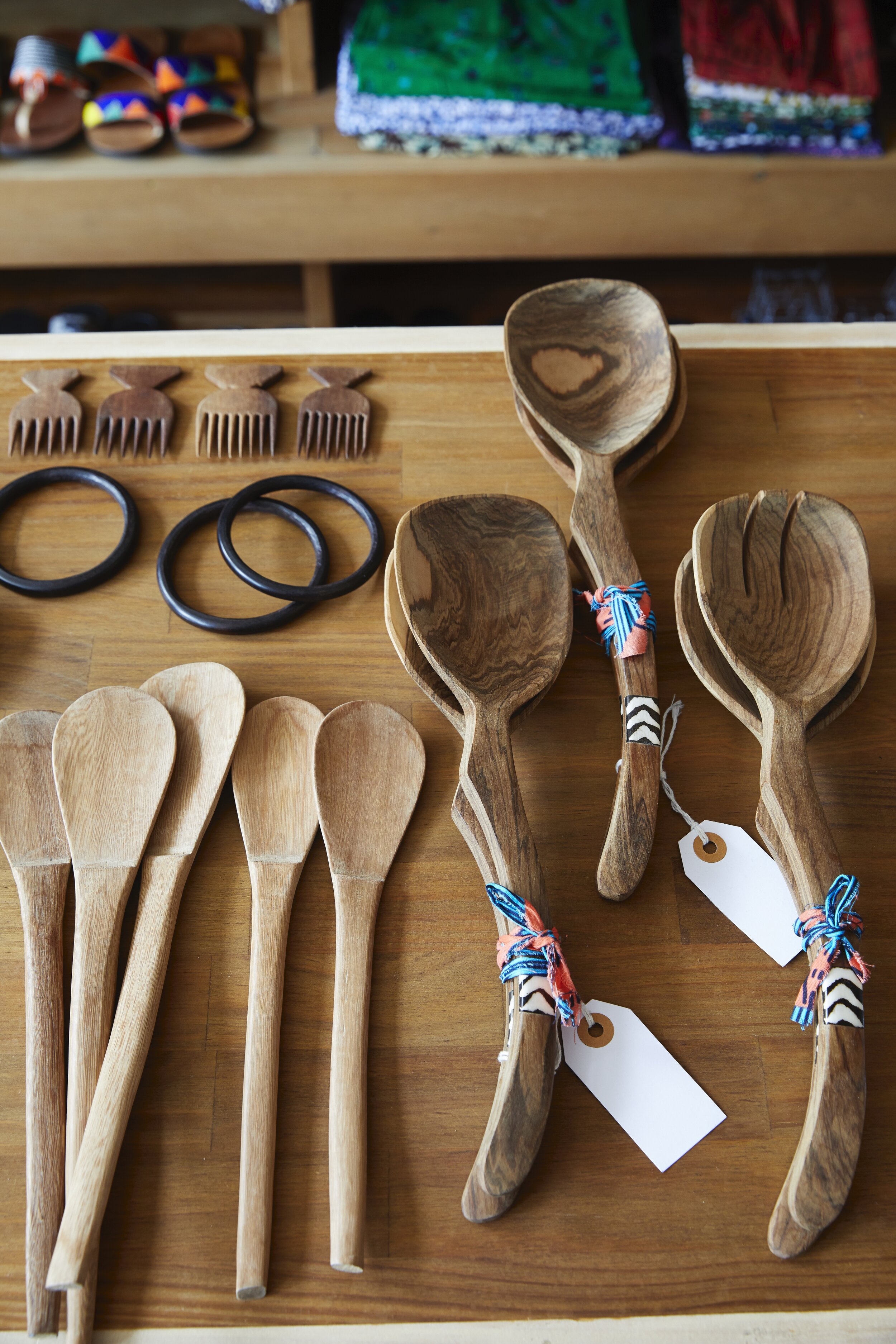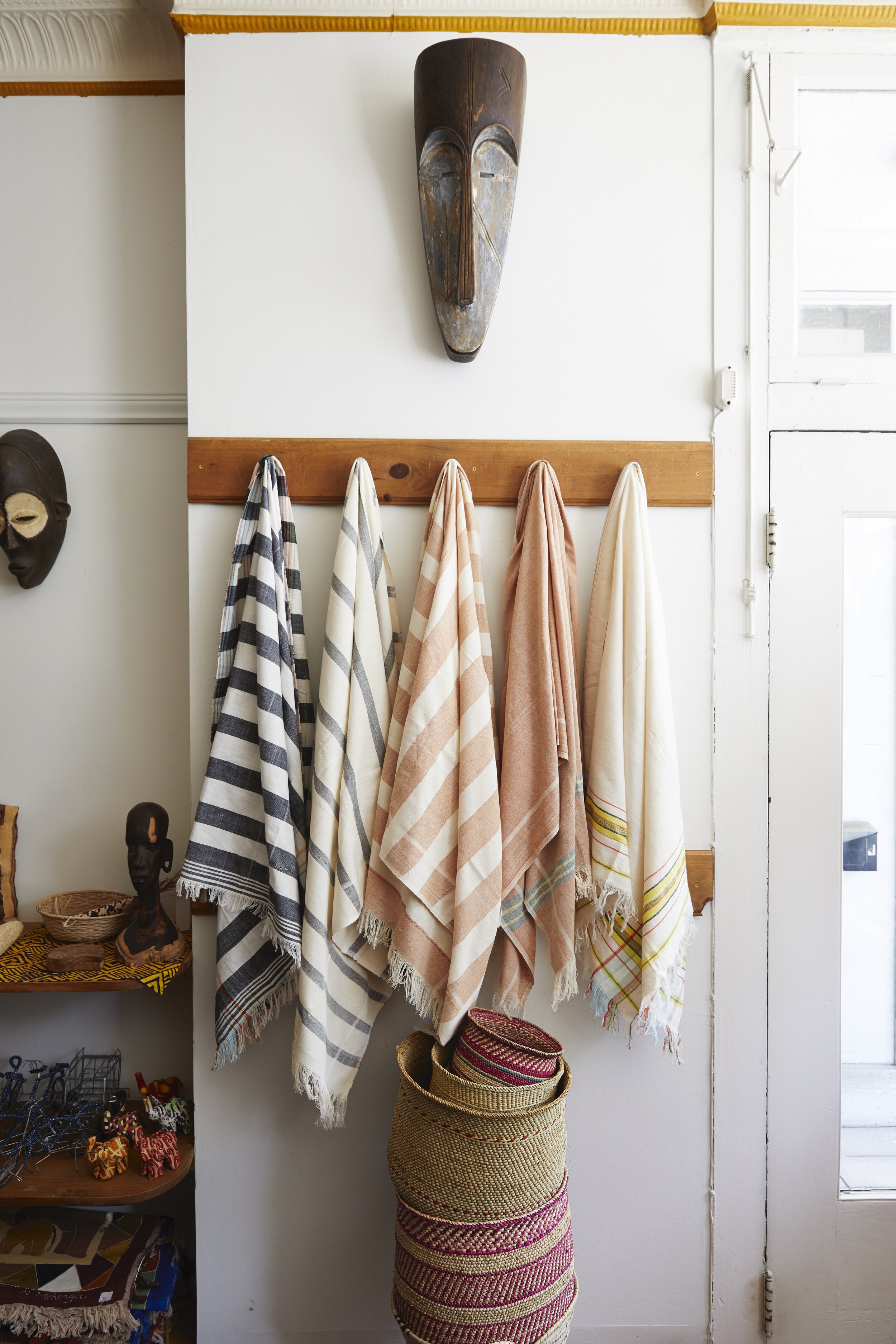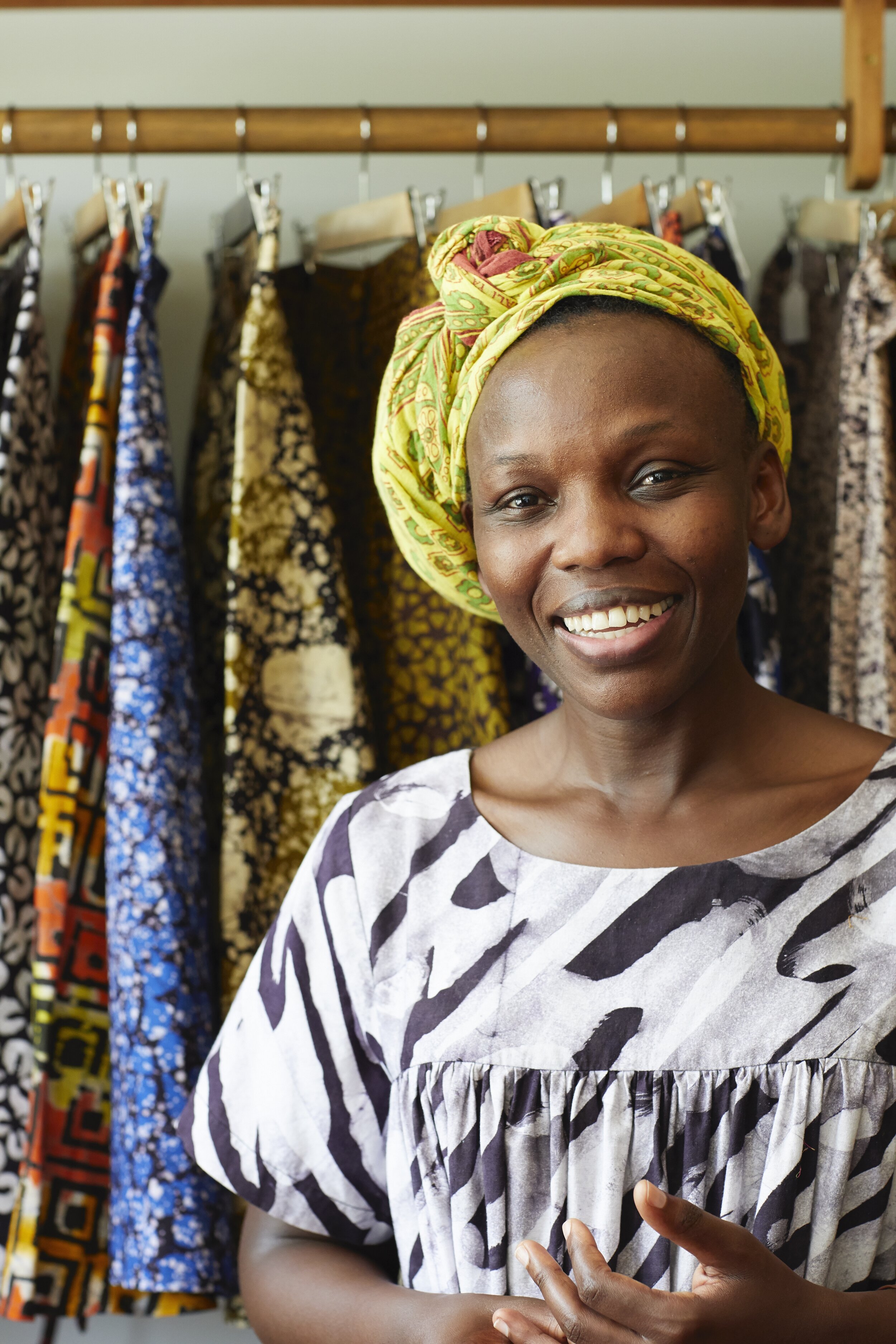Meet the Maker: Fahari Wambura
Fahari Wambura always had a hunch that she’d be good at sewing, but rather than acting on that ink- ling, she’d pursued another career where hunches served her well: journalism.
And yet, as a writer for a newspaper in Tanzania, her passion for the art of handcraft was evident. Relishing the opportunity to interview the country’s brilliant tailors and artisans, Wambura eventually began buying her own fabric and drafting up clothing designs before sending to the tailors to bring to life. She always told herself that, one day, she would have her own little shop selling those colorful creations.
When she and her husband moved to the Hudson Valley in 2014, the universe seemed to give her a nudge — well, two, actually. Her mother-in-law and husband each gifted her a sewing machine. “I wasn’t sure what to do with them immediately,” Wambura recalls. “But I knew I was going to do something.” So she set them aside and awaited inspiration.
That spark finally came one morning in 2015. “One day, I just woke up and I knew exactly what I wanted to do,” she says. “But I didn’t know how to sew. So I thought I should start with something simple, like a tote bag.”
She studied a 15-minute YouTube video and within a week, she had made 75 tote bags. “It was just an obsession,” she says. After dropping her kids at school in Ghent one morning, she stopped by the Hawthorne Valley Farm Store to see if they might be interested in selling her bags. Yes, they said... and could she make 150 of them, along with some coin purses? Another YouTube tutorial later, Wambura was in business.
After months of selling her designs at flea markets and a few other stockists throughout the Hudson Valley, Wambura decided it was time to hang her own shingle. She found the perfect space on Hudson Avenue in Chatham, and then returned to Tanzania, visiting those same tailors, this time with the intention to finally make her dream a reality.
Five years on, Fahari Bazaar supports a network of tailors, seamstresses, artisans, and makers in Tanzania with work that goes far beyond tote bags. Among the colorful inventory is clothing, shoes, rugs, pillows, traditional Tanzanian kitenge and batik fabrics, and baskets woven from milulu reed grass, all crafted by hand in small batches.
Each product, Wambura says, should be viewed as more than just an object. “We have to put value in things that we wear, things that we use,” she says. “So when you’re having your cereal in the morning, it’s not just a bowl, but something to appreciate. If you have a dress or a basket from my shop, I want it to be much more than just a basket or a dress. It has to mean something, to evoke something, whether that’s joy or something else.”
The most heartwarming compliments she receives are when people tell her about the meaningful place her products have in their lives. “They say things like ‘I only wear this dress when I need to feel courageous’ and I’m always really grateful when someone tells me something like that because I know that my intention for it is working.”
Although owning a marketplace may be worlds away from journalism, Wambura says that Fahari Bazaar allows her to achieve the same goal she had as a writer. “I’ve always been very sensitive to other people’s suffering — it’s something that I can’t ignore, can’t run away from,” she says. “In my writing, that was always my goal, to lift up voices of people that are never talked about or never heard. And that’s what the idea was for Fahari Bazaar — to do something that will impact as many people as I possibly can through my business.”
By Mikki Brammer
Photography by Tara Donne











